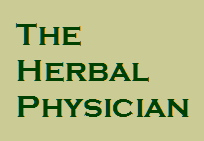|
|



Valerian (Valeriana officinalis) Herbal Treatment for Insomnia Scientific Evidence from Clinical Trials One study found that the use of valerian increases rapid eye movement (REM) sleep (Herrera-Arellano, et al 2001), which is responsible for consolidating memories and assisting with learning. Two studies have shown that valerian increases slow wave sleep (Schultz, et al 1994 and Donath, et al 2000). Slow wave sleep is also known a deep sleep or stage three and four of non-rapid eye movement sleep, which is characterized as the deepest phase of the sleep cycle that is the most difficult to wake from. Three separate studies showed that the use of this herb decreases the period of time that one spends in stage one of non-rapid eye movement sleep (Schultz, et al 1994; Donath, et al 2000; and Herrera-Arellano, et al 2001), a phase of light sleep where the individual is easily woken. Phase one is often so light that when people wakeup after entering it for the first time during a sleep, they often do not believe that they have slept. It has been shown that valerian increases the density of K-complexes during phase two on non-rapid eye movement sleep (Schultz, et al 1994). The main functions of K-complexes are to suppress wakefulness, alertness, muscle tone, and heart rate in response to stimuli that the sleeping brain encounters; and to assist in the consolidation of memories. A randomized, double-blind, placebo-controlled study of 37 insomniacs that were suffering from withdrawal from benzodiazepine, a drug that is often prescribed for insomnia, reported that the quality of sleep in the test group, which was taking an extract of valerian, improved over that of placebo group after two weeks. It was also noted that the herb decreases wake time after the onset of sleep (Poyares, et al 2002). Another randomized, double-blind, placebo-controlled study assessed the effects of valerian on children who had problems sleeping. The results indicated that the test group started falling asleep faster, slept longer, and experienced improvements in the quality of sleep. The benefits of valerian were particularity apparent in the children with hyperactivity disorders (Francis, et al 2002). A trial demonstrated that an herbal product containing 160 mg of valerian and 80 mg of lemon balm was equally effective at promoting sleep as 0.125 mg of triazolam, a benzodiazepine derived drug that is used in the treatment of insomnia. This combination was found not to decrease concentration or increase daytime sedation (Dressing, et al 1992). Another herbal product that contains valerian and hops was shown to decrease the impact of noise on both REM and slow wave sleep patterns (Muller-Limmroth, et al: 1977). Combinations of valerian and hops have been found not to increase drowsiness after waking (Gerhard, et al: 1996). Herbal Combination used to Treat Anxiety Disorders Valerian (Valeriana officinalis) and Lemon Balm (Melissa officinalis) Scientific Evidence from Clinical Trials A placebo-controlled trial evaluated a combination containing valerian and lemon balm to determine if it relieved anxiety. Various doses of the combination were taken during the study. Some benefits were notes when 600 mg or 1200 mg were taken three times per day. However, there were indications that anxiety increased during stressful situations when 1800 mg were administered three times per day. Individuals taking this herbal combination at any dose showed slight decreases in cognitive functioning when compared to the placebo group (Kennedy et al. 2006). References Donath, F., S. Quispe, K. Diefenbach, A. Maurer, I. Fietze, I. Roots. 2000. "Critical evaluation of the effects of valerian extract on sleep structure and sleep quality." Pharmacopsychiatry. 33(2)47-53. Dressing, H., D. Riemann, et al. 1992. "Insomnia: Are valerian/balm combinations or equal value to benzodiazepine?" Therapiewoche. 42:726-36. Francis, A.J., R.J. Dempster. 2002. "Effects of valerian, Valeriana edulis, on sleep difficulties in children with intellectual deficits: Randomized trial." Phytomedicine. 9(4):273-79. Gerhard, U., N. Linnenbrink, C. Georghaidou, V. Hobi. 1996. "Vigilance-decreasing effects of 2 plant-derived sedatives." Schweizerische Rundschau fur Medizin Praxis. 85(15):473-81. Herrera-Arellano A, Luna-Villegas G, Cuevas-Uriostegui ML, Alvarez L, Vargas-Pineda G, Zamilpa-Alvarez L, et al. 2001. "Polysomnographic evaluation of the hypnotic effect of Valeraina edulis standardized extract in patients suffering from insomnia." Planta Medica. 67(8):695-99. Kennedy, D., W. Little, C. Haskell, et al. 2006. "Anxiolytic effects of a combination of Melissa officinalis and Valeriana officinalis during laboratory induced stress." Phytother Res. (Jan 27). Poyares, D., C. Guilleminault, M.M. Ohayon, S. Tufik. 2002. "Can valerian improve the sleep of insomniacs after benzodiazepine withdrawal?" Prog Neuropsychopharmacol Biol Psychiatry. 26(3):539-45. Schultz, H., C. Stolz, J. Muller. 1994. "The effects of valerian extract on sleep polygraphy in poor sleepers: a pilot study." Pharmacopsychiatry. 24(4):147-51. |
An outline of clinical studies that verify the effectiveness of herbal medications and supplements |

